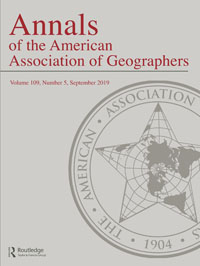The Strange Flight of the Peacock: Farmers’ Atypical Northwesterly Migration from Central China, 200 BC–1400 AD
Abstract: A common Chinese proverb—“A peacock flies southeast”—could describe the normative idea of the southeasterly spread of agriculturalists as a trend in historical China. Indeed, northwest China was the least attractive place to agriculturalists because of its much harsher climatic conditions. Previous research on the historical northwesterly movements of Chinese farmers has relied on isolated case studies and suggested a variety of causes. This study is the first attempt to bridge geographical and historical methodologies considering the influences of climate change to supplement current ideas about Chinese migration. This study surveyed 195 individual cases of northwesterly migration of agriculturalists from central China and along the Silk Road Region from 200 BC to 1400 AD, comparing historical records of these migration cases to extensive paleoclimate data. We found statistical evidence that the northwesterly movements of farmers increased when the climate was drier. The historical records were consulted to explain this seemingly atypical pattern. We conclude that the agriculturalists’ northwesterly migration increased during dry periods mainly as a response to the southward invasion of northern nomads, which was also a result of increased aridity. These conclusions add to the growing literature that indicates climate change as a central driver in intergroup conflict, having geopolitical implications. Forward-looking strategies relating to trade and immigration in the region, including the One Belt and One Road Initiative, should consider the shrinkage of rainfall under the potential threats of global warming. Increased aridity could have sizable effects on political, social, or economic structures far from north-central China.

